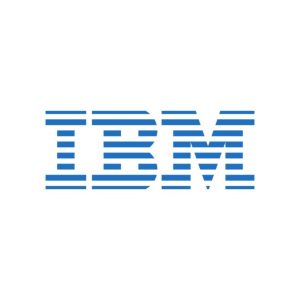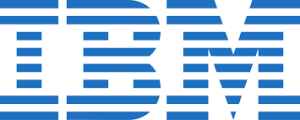- All
- Favorite
- Popular
- Most rated

Monitoring and Logging Tools
This course covers monitoring and logging tools for IBM Cloud VMware solutions. You will explore the features, functionality, and use cases for each of the three monitoring and logging tools.

The Major Cloud Service Models
This course reviews the major cloud service models including Information as a Service (IaaS), Platform as a Service (PaaS) and Software as a Service (SaaS).

Cloud Job Role Videos
This course provides an awareness of a few of the different job roles users of IBM Cloud® have.

Overview of Troubleshooting
This course highlights why troubleshooting is important, the generic troubleshooting process, and the factors that make an SRE an effective troubleshooter.

Edge Solutions on Cloud
This course explores Edge computing and how Edge computing might leverage IBM Cloud®.

Disaster Recovery
This course describes how VMware on IBM Cloud offers Disaster Recovery through its third-party partners, Veeam and Zerto.

Troubleshoot Serverless Services
This course reviews strategies for troubleshooting functions when an action is failing, troubleshooting functions with a Node JS Engine.

Survey for Professional Site Reliability Engineer (SRE)
This is a survey is for the entire Professional SRE curriculum and learning path.

Storage Replication and Failure Domains
This course introduces the concepts of data and storage replication, along with failure domains and the infrastructure used to ensure high availability.

Designing Cloud Native Architecture
This course introduces you to application architecture. You will learn about cloud native, event driven, and modern integration architecture and how they can be implemented.

Capabilities of Serverless and FaaS on IBM Cloud
This course introduces IBM Cloud Functions, serverless functions such as FaaS and Platform-as-a-Service (PaaS), and IBM Cloud Code Engine.

Developing a Balanced Action Plan to Mitigate Future Incidents
This course describes how to identify contributing factors and root causes that lead to an incient, and reviews componenets of a balanced action plan.

Troubleshoot VMs on IBM Cloud
This course identifies how to troubleshoot common issues for VMs on IBM Cloud for the Command Line Interface (CLI).

IBM Power Virtual Server Survey
Provide feedback for the IBM Power Virtual Server Specialty curriculum.

Automation for the Application Platform using IBM Cloud Schematics
This interactive course introduces the automation for the application platform using IBM Cloud Schematics.

Using IBM Cloud Code Engine
This course covers the fundamentals of using IBM Cloud® Code Engine and buildpacks for deploying and managing applications in a cloud native environment.

Architectural Overview: IBM Cloud for VMware Solutions
This interactive course explores the IBM Cloud for VMware solutions offerings and key options. Learners will learn about the systems architectures and high-level features of VMware solutions Shared.

IBM Cloud Professional Architect Concepts
This achievement is a stepping stone to earning the IBM Cloud Professional Architect certification.

IBM Cloud Features and Benefits
This course covers the fundamentals of IBM Cloud® features and benefits.

The History and Evolution of the Cloud
This course reviews the history and evolution of the cloud, reviews virtualization and serverless computing and some of the trends associated with the cloud.

Watson AI Services available on IBM Cloud
This course introduces the learner to IBMs Watson AI services including Watson studio, assistant, speech to text, text to speech and the knowledge catalog.

Migrating Complex Workloads to Containers on IBM Cloud
In this course, you'll explore migrating complex workloads to containers in IBM Cloud® Kubernetes Service and OpenShift® on IBM Cloud.

Introduction to IBM Cloud Advanced Architect
Welcome to the Advanced Certification Curriculum for the IBM Cloud® Architect job role.

Implement Infrastructure as Code
This course covers Infastructure as Code, including the benefits and how an SRE implements it with Terraform and IBM Schematics.
The Founding of IBM and Its Evolution Over the Years
IBM’s roots trace back to the early 20th century, when it was initially founded as the Computing-Tabulating-Recording Company (CTR) in 1911 through the merger of three companies that manufactured various devices, including punch card machines and time-keeping equipment. In 1924, the company adopted the name International Business Machines, which aligned with its ambitions to lead the global market in technological solutions. During the 1930s and 1940s, IBM expanded its influence by introducing automated tabulation machines, which became essential tools for businesses and governments. IBM’s success continued with its innovations in mainframe computers in the 1950s and 1960s, which solidified the company’s position as a leader in computing technology. The IBM 701, released in 1952, was the company’s first large-scale electronic computer, and it marked the beginning of IBM’s dominance in the mainframe market.IBM’s Notable Milestones
Throughout its history, IBM has consistently been a leader in groundbreaking technology. Some of the company’s most notable milestones include:- 1964: The launch of the IBM System/360, a family of mainframe computers that could be used for a wide variety of tasks. This innovation was a turning point in the computing industry, allowing businesses to invest in technology that could grow and adapt with their needs.
- 1997: IBM’s Deep Blue, a chess-playing computer, made history by defeating world chess champion Garry Kasparov, showcasing the potential of artificial intelligence.
- 2011: IBM’s AI-powered system, Watson, won Jeopardy! against human champions, further cementing IBM’s leadership in AI research and development.
- 2016: IBM became one of the first companies to provide cloud services with its IBM Cloud platform, which today remains one of the most widely used enterprise cloud platforms worldwide.
- 2020: IBM advanced its quantum computing efforts by launching the IBM Quantum Experience, a cloud-based platform that allows researchers and developers to access quantum computers.
IBM’s Educational Offerings and Certifications
IBM’s dedication to education is evident in the wide range of courses it offers across multiple domains of technology. The company’s IBM Skills Academy is an industry-leading educational platform that provides learners with in-demand skills. IBM’s courses on EdCroma include specialized training in:- Data Science: Master the fundamentals and advanced techniques of data analytics, machine learning, and AI.
- Cloud Computing: Learn to develop and manage cloud infrastructure using IBM Cloud and other industry-leading tools.
- Blockchain: Gain expertise in blockchain development and its applications in finance, supply chain, and cybersecurity.
- Cybersecurity: Learn about the latest threats and how to defend against them, leveraging IBM’s extensive experience in securing enterprise-level systems.
- Quantum Computing: Explore the future of computing with IBM’s quantum education programs, which provide hands-on experience with quantum algorithms and development.
IBM’s Approach to Learning
IBM’s educational philosophy is centered on continuous learning and skill development. As technology evolves, so do the demands of the workplace. IBM ensures that learners stay ahead of the curve by offering courses that reflect the latest trends and technological advancements. Courses are designed to be interactive and engaging, with hands-on projects and case studies that help students apply what they’ve learned to real-world scenarios. Additionally, IBM emphasizes the importance of industry collaboration. Many of the company’s courses are developed in partnership with leading academic institutions and industry experts. This ensures that the curriculum is not only academically rigorous but also aligned with the needs of the business world.Why Choose IBM as Your Educational Partner?
IBM’s legacy of innovation, combined with its commitment to education, makes it a top choice for learners who want to excel in the tech industry. By enrolling in IBM’s courses on EdCroma, students gain access to:- World-class instructors with decades of industry experience.
- Cutting-edge resources and tools for hands-on learning.
- Globally recognized certifications that enhance career prospects.
- A community of industry professionals and thought leaders who are shaping the future of technology.

